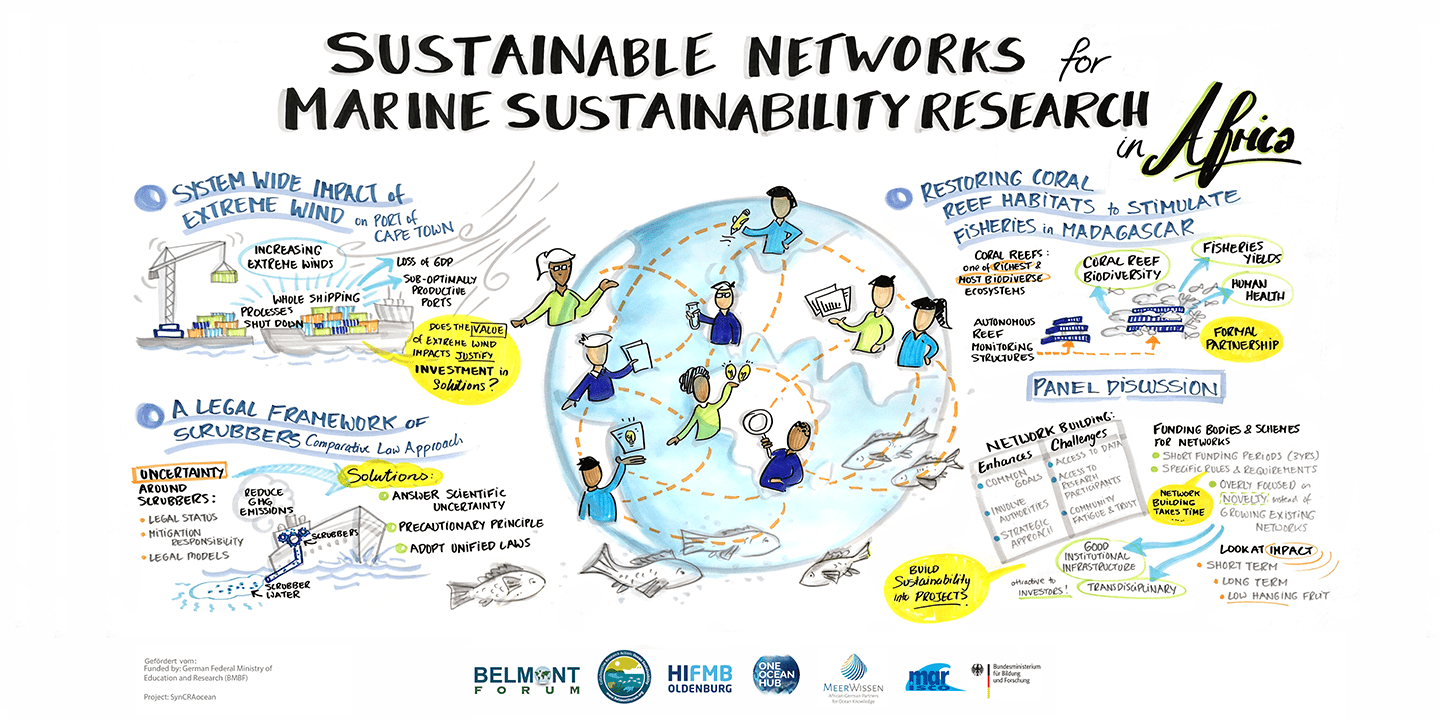Marine spaces are more threatened than ever by various factors, such as the consequences of climate change, overfishing and geopolitical conflicts. Innovative and co-designed research approaches are essential to understand the threats and their impacts, and to find sustainable solutions. But future co-designed and co-created innovative and successful research will not be possible without sustainable and well-functioning networks.
Together with researchers and practitioners of the Belmont Forum CRA “Transdisciplinary Research for Ocean Sustainability” we collectively discussed what is needed to create, maintain, strengthen and further develop networks for marine sustainability research in Africa at the Sustainability Research & Innovation Congress 2022 (Pretoria, South Africa). The session was initiated by the Belmont Forum CRA Oceans Coordination team (BMBF funded project “SynCRAocean”) and the GIZ implemented African-German Partners for Ocean Knowledge “MeerWissen” initiative (BMZ funded). Three projects, ShipTrase, ARMSRestore, Exebus set the ground for an engaging panel discussion. Our session engagement is artistically represented in the above image, which was developed live by Sonja Niederhumer through participation in the session itself.
Here we pick-out some key insights of the presentations and some more general reflections. In a comparative law approach on the legal framework of scrubbers, an air pollution control devices on ships, Shams Al Din Al Hajjaji (Project ShipTrase) emphasized the importance of communication and collaboration with intergovernmental and international actors. The project EXEBUS, presented by Neville Sweijd, is investigating ecological and economic impacts of the intensification of extreme winds in the Benguela Upwelling System on the port of Cape Town. Open data access and trustworthy cooperation with African state organizations, local stakeholders and the scientific community are the building blocks for such multi-dimensional projects. In Madagascar a collaboration of locally-managed fishers, international academics, and NGO’s are working together to restore coral reef habitat and stimulate fisheries. Gildas Todinanahary from the ARMSRestore project, highlighted that achieving healthy reef ecosystems, increasing fisheries yields and improving human health, is highly dependant on legal and formal collaborations with local public authorities.
The panel discussion, facilitated by Bernadette Snow and Helmut Hillebrand (both involved in the MARISCO project), linked the importance of sustainable networks in sustainable marine research in Africa and beyond to the need to adapt funding schemes. Funding periods must enable the time-intensive (!) development of new and innovative networks as well as the maintenance and strengthening of existing networks. The discussion further crystallized the “low hanging fruit” of long-lasting well-established collaborations when it comes to effectively engendering impact and sustainability in transformative change.
Dr. Kristin Tietje
Scientific Coordinator “SynCraOcean”
